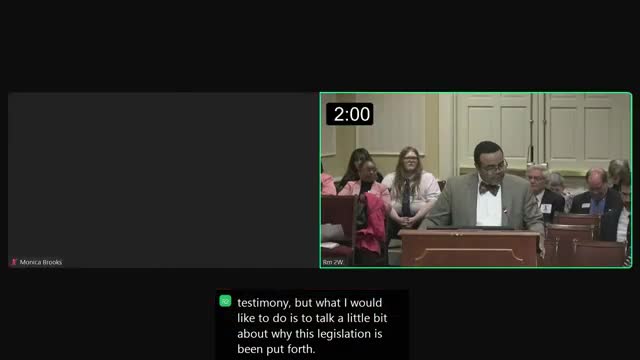Article not found
This article is no longer available. But don't worry—we've gathered other articles that discuss the same topic.
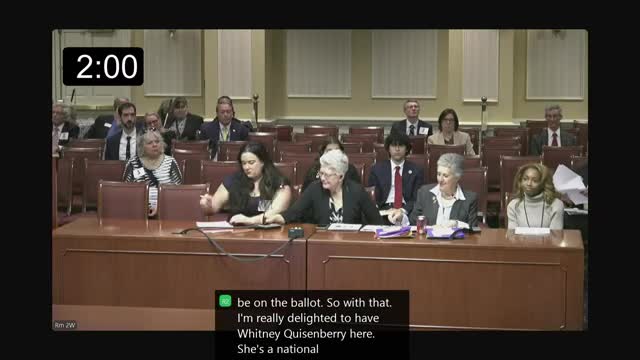
Roundup: Committee reviews a package of Kagan election bills on administration, ballots and transparency

Committee considers tighter absentee‑ballot signature verification rules and disability concerns
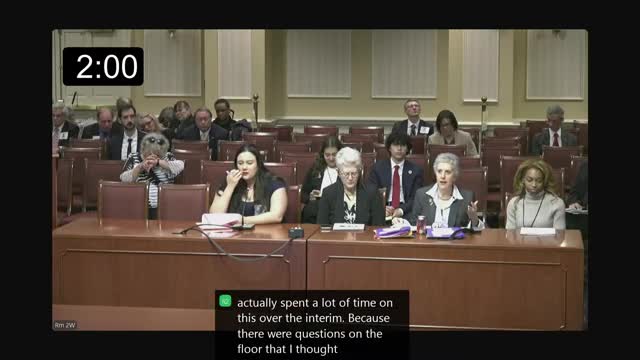
Senate hears bill to authorize ranked‑choice voting in presidential primaries; sponsors say opt‑in approach limits disruption
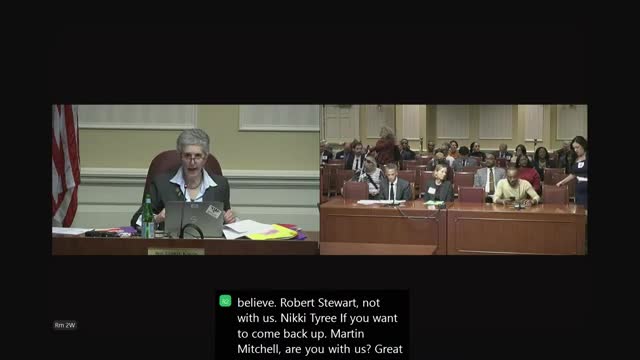
Committee weighs criminalizing deceptive synthetic media aimed at influencing voters
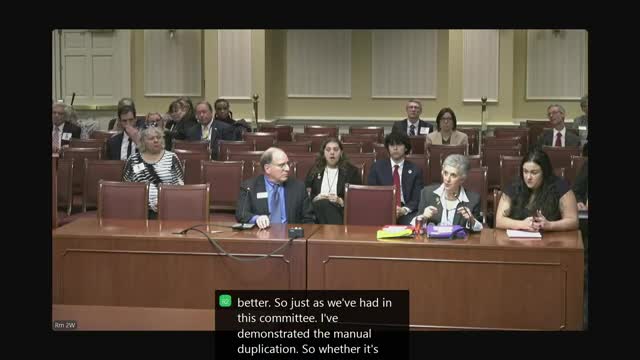
Lawmakers consider risk‑limiting audits to strengthen post‑election confidence
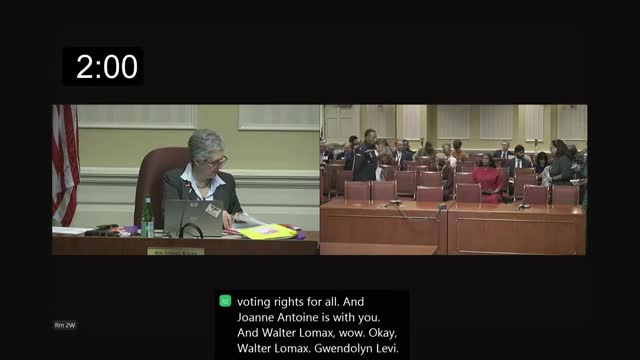
Committee hears bill to restore voting rights to Marylanders incarcerated for felony sentences
